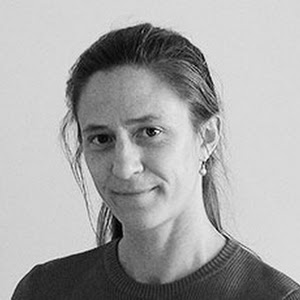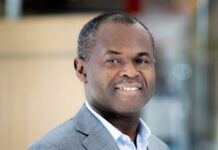As a Rhode Island School of Design professor and head of the school’s glass department, Rachel Berwick’s work has been shown internationally in such venues as the Serpentine Gallery in London, the 26th Bienal de Sao Paolo, the seventh International Istanbul Bienal and Musée d’Art Moderne de la Ville de Paris. In the U.S., she has exhibited at the Smithsonian American Art Museum, the Massachusetts Museum of Contemporary Art, the Aldrich Museum of Contemporary Art and Sikkema Jenkins & Co. in New York, among others.
Berwick has received numerous grants including fellowships from the Joan Mitchell Foundation, Anonymous Was a Woman Foundation and the Ingram Merrill Foundation, a Smithsonian Artist Research Fellowship and The Robert Rauschenberg Residency.
PBN: How and when did the Rhode Island School of Design glass program begin?
BERWICK: It started in 1966 when RISD faculty member Norm Schulman partnered with fellow faculty member Ken Hunnibel to build an experimental glass furnace on Ken’s Rehoboth farm. The glass shop eventually moved to the RISD campus’s Metcalf Building and evolved into a full-fledged department, which quickly became the leader in the studio glass movement.
PBN: How has glassmaking evolved as an art form in that time and what role has RISD played in that growth?
BERWICK: RISD Glass has been at the forefront of the American [studio glass] movement since its inception in the 1960s and has maintained a position of leadership in glass to this day. In the 1960s, the questions our predecessors were posing focused on the potential of glass as a sculptural medium. The contemporary art world was looking for nontraditional art materials [that] provided the opportunity for glass to evolve from a production material to a fine art medium.
RISD Glass has always prioritized experimentation and investigation as the foundation for creative practice. We pose questions about the possibilities of what glass can be materially and conceptually, while also training students to understand how to work with it in a facile way. In other words, we are always encouraging our students to push the boundaries, to cultivate and maintain a sense of wonder in all they do.
PBN: What distinguishes RISD’s glass program from other similar production programs?
BERWICK: First and foremost, RISD Glass is not a production program. We teach glass as a fine art medium. Therefore, we push our students to think materially, technically and conceptually, all at once. We never prioritize material or the technical over the conceptual; this is a huge difference from other glass departments.
At RISD, we expect a lot from our students. Glass is technically demanding, and it has infinite conceptual and metaphoric associations. Our students have to be adept at recognizing how their work functions in the larger contemporary art world while also managing the enormous technical demands of the medium.
PBN: The initial response in recognition of the 50th anniversary, “Wonder: 50 Years of Glass at RISD,” was published in partnership with the school. A section is entitled “Invisible/Unseen,” what role does this idea play in glassmaking?
BERWICK: That is no small question. Glass is properly defined as an amorphous solid: in between one state and another. Furthermore, it is a ubiquitous material that we encounter every day in myriad ways: we look through glass, drink from glass, look at our reflections in glass and on it goes. Glass is a physical material for which transparency or invisibility is its most valued asset.
PBN: How do you expect the RISD glass program to grow in the coming years?
BERWICK: Over the last five to 10 years we have built on our process of investigation and experimentation by expanding the scope of our research. We are looking at the ways in which glass manifests in the world, our everyday lives, our technology and our cultural metaphors (transparency, glass ceilings, black mirrors).
This research, alongside material investigations, guides our students to develop work that places itself within contemporary dialogue. RISD Glass alumni are uniquely qualified to face the challenges of our rapidly shifting world – they are redefining art, history, science, alchemy and making.
Emily Gowdey-Backus is a staff writer for PBN. You can follow her on Twitter @FlashGowdey or contact her via email, gowdey-backus@pbn.com.













